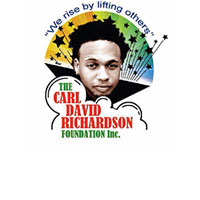


THE EARLY INTERVENTION PROGRAM
The Early Intervention Program is a public program funded by New York State and county governments for children birth to three years of age who have or are suspected of having a developmental delay and/or disability. Potentially eligible children must be referred directly to the municipality of residence (in NYC dial 311 and request an EI referral). All EIP services are provided at no out of pocket cost to parents; however, a child’s health insurance information is collected and used to cover some service costs for approved services. Health insurance, however, is not required to participate in the Early Intervention Program.
A child’s eligibility for the program can be determined only by state-approved evaluators under contract with the state/municipality. If a child is found eligible for the EIP, all necessary EIP services are identified, in collaboration with the parent, and must be authorized by the municipality. These services can include but not be limited to, special instruction, physical therapy, occupational therapy, speech therapy, feeding therapy, nutrition services and assistive technology/adaptive equipment. The municipality, together with the parent, will select the provider agency or agencies that will work with the child and family. If services are delivered in childcare settings or community locations that require a fee, the parent is responsible for paying the fee and any associated costs.
The Carl David Richardson Foundation is an approved Early Intervention Program and has an agreement with the NYS Department of Health as a provider of EIP Service Coordination services.

SERVICE COORDINATION SERVICES
Each child referred to the Early Intervention program is assigned a qualified person to act as your Service Coordinator (case manager); and ensure communication as well as collaboration between all parties for the duration of your time in the program. This qualified individual speaks your language, understands your culture and has unique experience in your child’s specific developmental needs in an effort to begin the process of establishing both rapport and trust. Service Coordinators help you identify your family concerns/priorities/resources, assist in developing plans to meet your family needs, strengthen your family to deal with life events, and ensure your family rights/procedural safeguards in Early Intervention are protected.

The Initial Service Coordinator (ISC) is your Service Coordinator designated by the Early Intervention Regional Office upon receipt of your child’s referral due to a suspected delay or a disability. This is the first contact you have with Early Intervention and therefore will be the person to answer your family’s questions and explain the entire Early Intervention process. Through telephone contacts, face to face meetings and home visits, the ISC will coordinate all services including evaluations and will also serve as the single point of contact in helping your family obtain the services and/or assistance for non-Early Intervention related services needed. The ISC will be responsible for orienting your family during the initial process from referral through coordinating the Individualized Family Service Plan (IFSP) meeting, if eligible, and ensuring that your family understands the process of Early Intervention as well as the principles and ideas of being a voluntary family centered program. If eligibility is not established, the ISC will remind your family of their options as mentioned during the initial home visit including – close the case, be referred for developmental monitoring, utilize community resources, request a re-evaluation or exercise your Due Process Rights.



The Ongoing Service Coordinator (OSC) is your Service Coordinator selected by the family at the time of the Initial IFSP meeting. The OSC will coordinate all services and will serve as the single point of contact across agency lines in helping your family obtain the services/assistance needed as well as be responsible for the implementation of the IFSP from the day after the Initial IFSP meeting is held until the case is closed in Early Intervention. The OSC is responsible to continually monitor the delivery of services authorized in your child’s IFSP plan as well as provide your family with opportunities to share information, priorities and concerns regarding your child’s development which may result in a change to the current IFSP plan. The OSC will work with you to develop a specific transition plan that is in place before your child turns three and ages out of Early Intervention to eliminate a gap in services for your child. A variety of methods are available for the OSC to accomplish this collaboration during the ongoing phase including home visits, face to face meetings, telephone contacts, email or zoom/face time.
RED FLAGS IN YOUR CHILD’S DEVELOPMENT*
What are some of the early warning signs in your child’s development to alert you that a referral to Early Intervention for further investigation would be appropriate?
- Not babbling or imitating different types of sounds by 6-9 months
- Not using hand gestures or pointing to communicate to others by 16 months
- Not understanding or following simple directions by 18 months
- No single words by 18 months
- Difficulty chewing/swallowing different food textures
- Gagging/vomiting during feeding
- Rigid/floppy muscle tone
- Not lifting head by 4 months
- Not rolling over by 4-6 months
- Not sitting by 6-8 months
- Not pulling to stand by 10-12 months
- Not walking by 14-18 months
- Not picking up small objects by 8 months
- Not manipulating toys by 12-16 months
- Not scribbling with a crayon by 18 months
- Loss of previously attained skills
- Short attention span and inability to focus on one activity
- Repetitive patterns of behavior (bangs head, turns lights on/off, spins objects, etc.)
- Prefers to play alone and not interact with others
- Rejects touch or hugs from others
- Avoids eye contact
- Seems to be developing at a much slower pace than his peers
*Red flags should be considered only as an indication to have further investigation by a licensed professional and should not be considered as a diagnosis or confirmation of a diagnosed condition*

PARENT RESOURCES LINKS
Click the link to download the PDF version of your free resources
Early Intervention Steps – A Parent’s Basic Guide to the EIP – Creole Version
PARENT RESOURCES LINKS
Click the link to download the PDF version of your free resources
Early Intervention Steps – A Parent’s Basic Guide to the EIP – English Version
https://www.health.ny.gov/publications/0532.pdf
Early Intervention Steps – A Parent’s Basic Guide to the EIP – Creole Version
https://www.health.ny.gov/publications/0563.pdf
Early Intervention Steps – A Parent’s Basic Guide to the EIP – Spanish Version
https://www.health.ny.gov/publications/0533.pdf
Family Rights – English Version
https://www1.nyc.gov/assets/doh/downloads/pdf/earlyint/ei-family-rights.pdf
Family Rights – Creole Version
https://www1.nyc.gov/assets/doh/downloads/pdf/earlyint/ei-family-rights-cr.pdf
Family Rights – Spanish Version
https://www1.nyc.gov/assets/doh/downloads/pdf/earlyint/ei-family-rights-sp.pdf
Developmental Monitoring for Babies & Toddlers at Risk – English Version
https://www1.nyc.gov/assets/doh/downloads/pdf/earlyint/ei-monitoring-brochure.pdf
Developmental Monitoring for Babies & Toddlers at Risk – Creole Version
https://www1.nyc.gov/assets/doh/downloads/pdf/earlyint/ei-monitoring-brochure-cr.pdf
Developmental Monitoring for Babies & Toddlers at Risk – Spanish Version
https://www1.nyc.gov/assets/doh/downloads/pdf/earlyint/ei-monitoring-brochure-sp.pdf
Early Help Makes a Difference – English Version
https://www.health.ny.gov/publications/0527.pdf
Early Help Makes a Difference – Spanish Version
https://www.health.ny.gov/publications/0528.pdf
TO CONTACT US FOR MORE INFORMATION ABOUT OUR PROGRAMS
Call: (800) 313-7591/ (718) 210-2163
OR
Email: carldavidrichardsonfoundation@gmail.com



